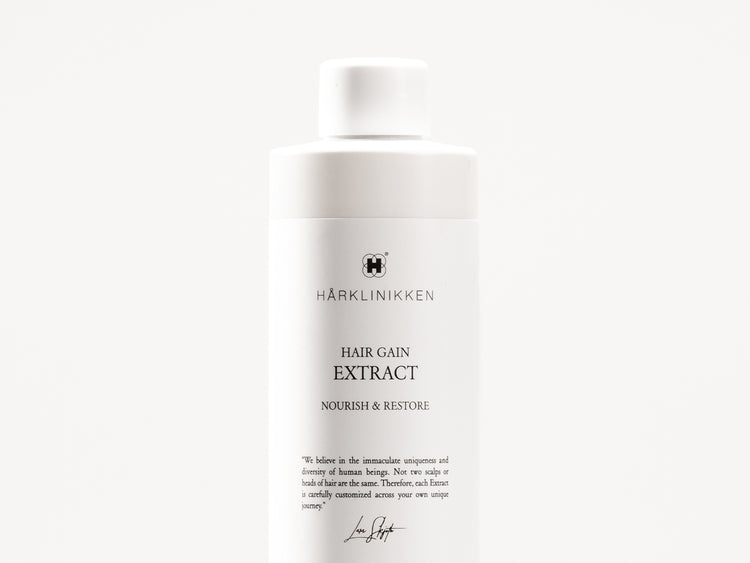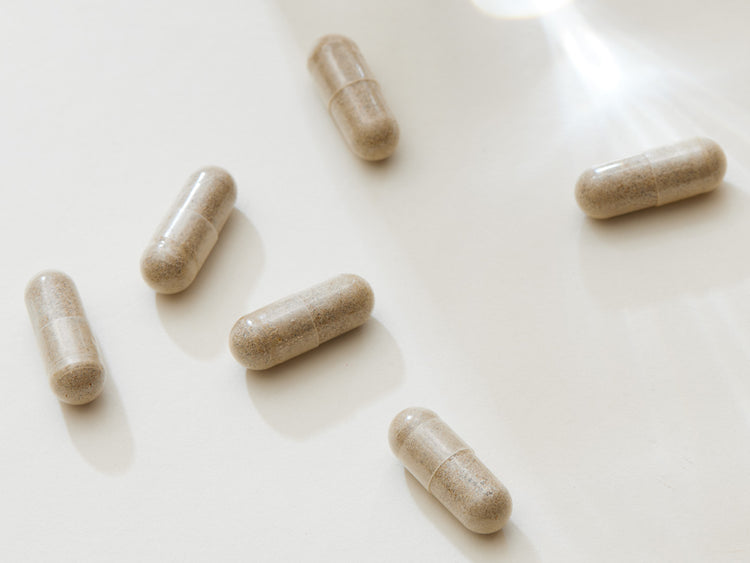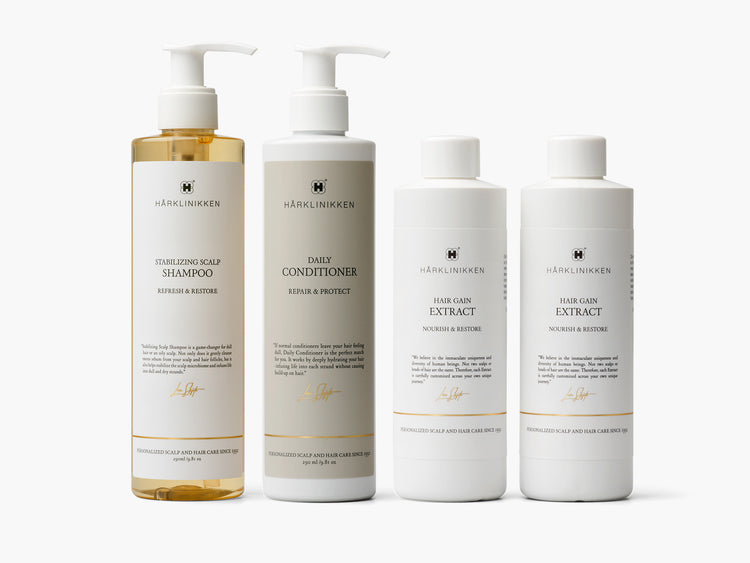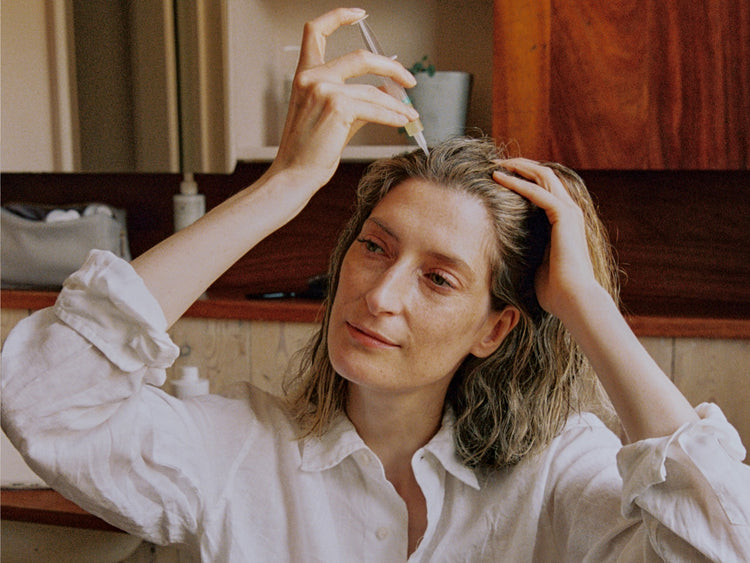If you’re one of the millions of people who deal with seasonal allergies, you’re probably familiar with the usual symptoms—sneezing, itchy eyes, and a runny nose. But did you know that these allergies could also be affecting your scalp? Pollen, dust, and other pollutants in the air don’t just cause congestion; they can also cause buildup or irritate your scalp, making it itchy, dry, or flaky. In today’s article, we’ll explore how these common seasonal allergens affect scalp health, hair health and density, and what you can do to support your hair during allergy season.
The link between allergies and hair thinning
While seasonal allergies aren't a direct cause of hair thinning, they can indirectly contribute to hair loss or thinning by causing stress, interfering with the hair growth cycle, and leading to scalp irritation.
Here’s how: When you come into contact with allergens, your immune system reacts by releasing histamines and other chemicals to defend your body from foreign substances. This immune response affects the entire body, including the skin on your scalp.
Signs you have scalp allergies
A more visible and noticeable allergic reaction to a foreign substance can present itself in the form of contact dermatitis. Contact dermatitis shows up in flaky, scaly skin that is often inflamed and itchy. This can occur when a substance irritates the skin or causes an allergic reaction. Hair products that contain fragrances, colorants, detergents, parabens, certain sulfates, and rubbing alcohol can often trigger these scalp allergies.
Contact dermatitis may also occur when the scalp comes into contact with seasonal allergens such as pollen, dust, dust mites, grass, and other pollutants in your environment.
The effects of allergies on your body
Immune health: Allergies are the result of an overactive immune system that misidentifies often harmless substances in the environment as threats, which then trigger an immune response. This can put a strain on your immune health and impact your overall wellbeing.
Stress: In a way, allergic reactions are a form of stress, which may impact the scalp or exacerbate preexisting hair conditions, potentially leading to hair loss or thinning.
Skin irritation: Allergens and seasonal changes can also cause irritation and increased scalp turnover, which may affect overall follicle health.
Inflammation and the hair growth cycle
The inflammation caused by allergens can trigger a temporary hair loss condition called telogen effluvium. This occurs when more hair follicles than usual enter the shedding phase of the hair growth cycle, sometimes causing noticeable hair thinning. While this is typically temporary, chronic inflammation due to ongoing exposure to allergens can prolong hair loss or make it more noticeable.
Allergies can cause an itchy scalp
Allergens like pollen and dust can lead to dryness, flakiness, or irritation on the scalp. This makes it harder for hair to grow properly, as clogged hair follicles may become weaker and more prone to shedding. Additionally, allergic reactions to these irritants can sometimes cause a condition called seborrheic dermatitis, which can contribute to hair thinning by causing excess oil and dandruff on the scalp. It can also lead to inflammation in hair follicles (folliculitis), which can result in scarring and subsequent permanent hair loss in the scarred follicles.
These clogged pores can impact the structure of your hair, making it more brittle and prone to breakage.
How dust impacts hair health
Dust is another common allergen that can affect your hair. When dust particles settle on your scalp, they can cause inflammation, clog hair follicles, and lead to scalp irritation. This can trigger hair shedding and make your scalp more prone to dryness and flakiness. If the dust buildup is left unchecked, it could lead to conditions like dandruff, which can further hinder healthy hair growth.
If you scratch your itchy scalp due to dust or irritation, you may also damage your hair follicles and increase shedding. Over time, this damage can contribute to thinning areas of the scalp, making hair loss more noticeable.
Tips for protecting your hair during allergy season
While you can’t stop allergy season from coming, there are several steps you can take to ensure your hair stays healthy during the change in seasons. Here’s how to care for your hair and minimize shedding:
1. Get your annual physical and blood work
A good first step in ensuring your hair stays healthy throughout allergy season is to get an annual physical and blood work. This will help you make sure your body is in balance and that any underlying conditions like thyroid imbalances or anemia aren’t contributing to hair loss. These conditions can lead to hair thinning or excessive shedding if left untreated.
2. Maintain a healthy scalp care routine
As the seasons change, so should your scalp care. Make sure to wash your hair regularly with the right shampoo and in the correct way to remove allergens like pollen and dust that may have accumulated on your scalp. Use gentle, soothing shampoos and conditioners designed for your specific scalp microbiome. Hårklinikken offers a wide range of clean, effective formulas that help support scalp health, hair hydration, and healthy hair growth.
It’s also helpful to massage your scalp while shampooing to increase circulation and stimulate hair growth. But be gentle—harsh scrubbing can irritate the scalp further and increase shedding.
3. Have healthy ways of dealing with stress
Stress is one of the biggest contributors to hair loss. If you’re already dealing with allergy symptoms, adding stress on top of that can worsen the issue. Find ways to manage your stress levels by actively prioritizing getting enough sleep and adding relaxation to your routine with meditation, yoga, a bath, journaling, and whatever else helps you feel centered. Mitigating your stress levels can help keep your cortisol levels in check, supporting your scalp and hair health.
You can also help support a healthy stress response with the Hårklinikken Hair Supplement. This premium formula contains clinically proven KSM-66® Ashwagandha, an ingredient known to help mitigate feelings of stress, as well as reduce serum cortisol levels. Our formula also contains pomegranate extract, which a natural source of antioxidants like vitamin C, which can further support your body’s response to environmental pollutants.* Together, the KSM-66® Ashwagandha addresses stress-related hair loss while vitamin C and pomegranate extract works to support your immune system’s response.*
4. Protect your scalp from allergens and pollution
When you’re spending time outside, be mindful of the allergens in the air. Consider wearing a hat or scarf to protect your hair from direct exposure to pollen, dust, and other pollutants. At home, using an air purifier can help filter out airborne allergens and keep your living space free from dust and pollen.
5. Consult a professional
If you’re noticing more hair loss than usual, or if certain areas of your scalp are thinning and not recovering, it’s important to seek professional help. A dermatologist or hair specialist can help determine if your hair loss is related to allergies or if there’s another underlying cause. They may recommend treatments such as topical corticosteroids, antihistamines, or other solutions to address scalp issues.
Conclusion
Seasonal allergies, whether due to pollen, dust, or environmental pollutants, can affect your hair health by causing inflammation, irritation, and excessive shedding. While seasonal shedding is completely normal, ongoing or severe hair loss may require professional attention. By maintaining a healthy scalp care routine, balancing stress levels, and supporting your immune health, you can help nourish your hair during allergy season.
If you notice that your hair isn’t recovering or areas of your scalp are thinning, book a consultation with one of our hair specialists to get the care your hair needs. With the right care, you can minimize the effects of allergies on your hair and keep your scalp healthy throughout the changing seasons.

Unsure where to start?
We only accept candidates who we believe we can help, which is why our online Hair Assessment is the best place to start. Based on your results, you will either qualify for immediate treatment or we will organise a consultation.






